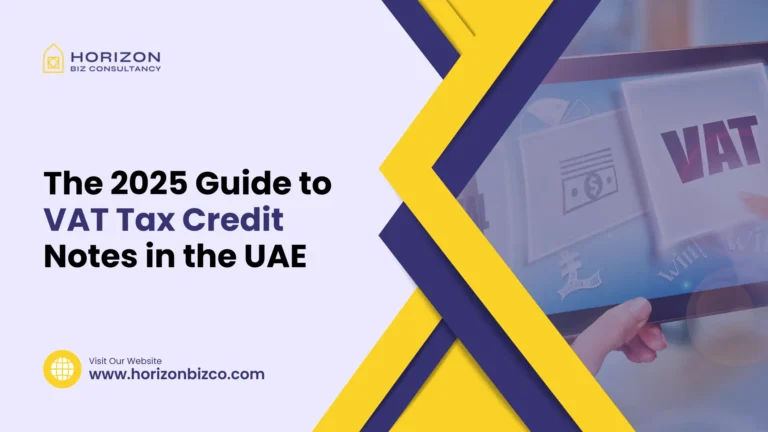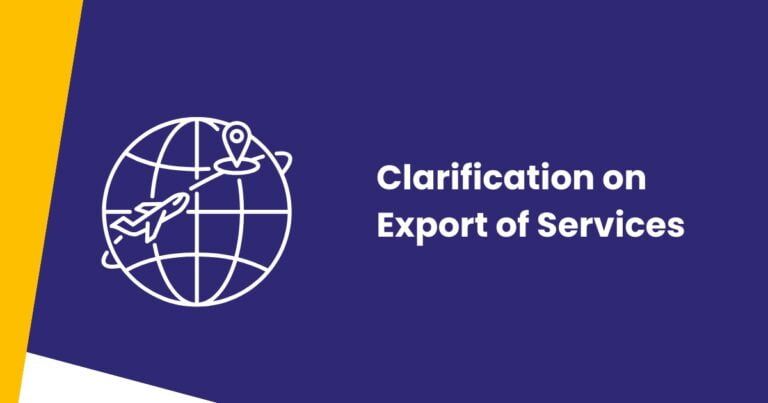Everything Businesses Need to Know
The United Arab Emirates (UAE) has announced several changes to their value-added tax (VAT) rules starting in 2025. One key update affects how businesses account for tax credit notes. But what exactly are tax credit notes and when are they required in the UAE?
This definitive guide explains everything businesses need to know about VAT tax credit notes – from what they are to step-by-step instructions for creating them properly. Read on to ensure your business is fully prepared for the 2025 VAT updates.
What is a Tax Credit Note Under UAE VAT Law?
A tax credit note, also called a VAT credit note, allows businesses to adjust the amount of VAT owed when certain events occur post-sale. These events include:
- Goods are returned by customers
- Discounts or price changes are made after purchase
- Invoicing errors or overcharges need correcting
By generating a tax credit note, the business can refund or credit customers for any excess VAT collected due to returns, discounts, billing mistakes, etc. The note also updates the total VAT liability for both the customer and vendor.
In essence, a VAT credit note offsets and reverses a portion of VAT that the business initially charged but no longer requires because aspects of the transaction changed. This is an important compliance mechanism within UAE’s VAT framework.
When Should Businesses Issue a Tax Credit Note?
There are three common scenarios where a VAT-registered business is required to generate a tax credit note under UAE law:
1. Customer Returns & Refunds
If a customer returns goods or cancels services after the initial sale, a tax credit note must be provided if VAT was included in the original invoice. This offsets the VAT portion that no longer applies post-return.
For example, if a retailer sells a taxable product for AED 1,000 inclusive of 5% VAT (AED 50), they must create a tax credit note when the item is returned to refund the AED 50 VAT charged.
2. Post-Sale Discounts & Price Changes
Similarly, if any discounts are offered or the seller reduces pricing after the original sale, a credit note adjusts the VAT amount to align with revised pricing.
For instance, if a wholesaler charges 5% VAT on an initial AED 5,000 order, then later gives a 10% discount, they would issue a tax credit note for 10% of the original VAT charged to grant the discount.
3. Invoicing Errors & Overcharges
Mistakes do happen – if the seller charges excess VAT due to a billing error or overcharge on the original invoice, they must provide a credit note to remedy this.
This refunds the customer for any extra VAT amounts paid because of the seller’s invoicing inaccuracies post-transaction.
Step-By-Step Guide to Creating a Tax Credit Note
If any above situations occur, VAT-registered UAE businesses must generate a compliant tax credit note. Follow these key steps:
Step 1: Reference the Initial Transaction Details
Start by referencing the original invoice and transaction the tax credit note relates to. This includes:
- Original invoice date and invoice number
- Customer name & contact details
- Description of goods/services impacted
Properly linking the credit note back to the underlying transaction is crucial for documentation.
Step 2: Outline the Reason for Issuing the Note
Next, summarize why the business must provide the tax credit note. Common reasons include:
- Customer returned goods
- Post-sale discount offered
- Overcharge/billing error on original invoice
Stating the purpose clearly is equally essential.
Step 3: Recalculate & Detail Revised VAT Amount
Based on the reason outlined in Step 2, the business must then recalculate the applicable VAT charge.
For example, if goods with 5% VAT are returned, the note would detail a credit for the full 5% VAT portion related to those returned goods.
Or if a post-sale 10% discount was given, the VAT would be recalculated as 10% of the original VAT charged.
Step 4: Include Unique Credit Note Number & Date
Assign the tax credit note its own unique serial number for tracking and documentation. Also clearly state the date of issuance.
Step 5: Make Adjustments in VAT Return Filings
Finally, be sure to account for the VAT credit note in your business’s regular VAT return submissions and liability calculations.
The amounts credited or refunded via the note should align with what’s declared to the Federal Tax Authority.
How Do Tax Credit Notes Change in 2025?
With VAT updates taking effect January 1 2024 across the UAE, businesses should be aware of three key changes regarding tax credit notes:
1. Faster Timeframes
- Credit notes must now be declared within 14 days instead of the prior 90 days after underlying event occurs (e.g. return, discount etc.)
2. Stricter Eligibility Criteria
- Qualifying reasons for tax credit notes are narrower – businesses can’t issue them as freely for all situations
- Tighter regulations around what circumstances actually warrant tax credits
3. Expedited Refunds
- VAT refunds related to credit notes now issued within 7 days
- Much faster turnaround vs months sometimes previously
These changes will significantly impact how businesses manage tax credit notes from 2025 onwards. Be sure to consult an accounting professional to ensure compliance with all new guidelines.
Conclusion
- Tax credit notes allow businesses to adjust VAT liabilities when events like returns or discounts happen post-sale
- A proper VAT credit note reverses/refunds excess tax charged on the initial transaction
- Starting January 2025, new credit note rules take effect in the UAE related to shorter timeframes, tighter eligibility and faster refund processing
- Businesses should review requirements now and upgrade internal processes before 2025
Correctly managing VAT tax credit notes is essential for businesses in the UAE. By understanding the new 2025 guidelines outlined here, companies can remain compliant and avoid violations. Reach out to a qualified VAT accountant for personalized advice catered to your operations.
FAQs
A VAT Tax Credit Note, also known as a Credit Note, is a document issued by a supplier to a customer when there is a reduction in the amount owed due to various reasons such as returned goods, discounts, or errors in the original invoice.
VAT Tax Credit Notes are crucial in the UAE for maintaining accurate financial records and complying with the country’s Value Added Tax (VAT) regulations. They help rectify discrepancies in invoicing and ensure transparency in business transactions.
A VAT Tax Credit Note should be issued when there is a change in the original transaction amount, such as a refund for returned goods, adjustments for discounts, or corrections to errors in the initial invoice.
A VAT Tax Credit Note should include details such as the supplier’s name and contact information, the customer’s name and contact information, a unique reference number, the date of issue, a description of the goods or services, the reason for issuing the credit note, and the revised transaction amount.





